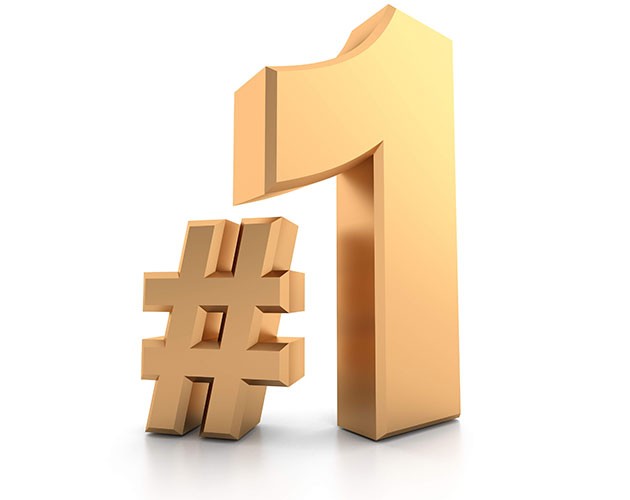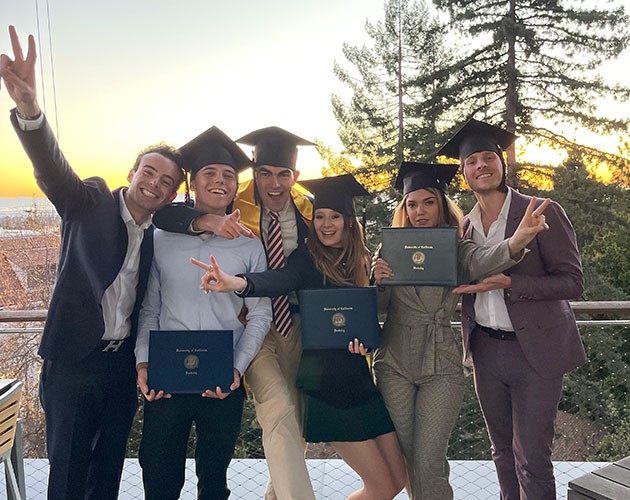Why I Came to Berkeley

Iris Ye is a finance major at Beijing Foreign Studies University in China and is a graduate of the Berkeley Haas Global Access Program, which brings international students from diverse backgrounds to study business and entrepreneurship at UC Berkeley. Her post below has been edited for clarity and length.
I still remember the most frequent question I was asked when I first arrived in the U.S.: “Why did you choose to come to Berkeley?” When I was writing this blog post, the question popped into my mind again. Now that my time in Berkeley is over, I can look back and tell you exactly why I went and what I learned.
Top-Tier Education
Education is not only about learning, but also about the people and environment. BHGAP courses were all taught by Haas School of Business professors so it sometimes felt more like I was an M.B.A. student and not an undergrad. Oftentimes, people criticize the gap between college education and real-life skills, but Berkeley Haas narrows the gap by offering case studies, guest speakers and GSIs (Graduate Student Instructors) who help reinforce the material in a small-group setting, along with lectures.
The ubiquitous resources encouraged me to challenge myself to study more and go beyond my abilities. There were definitely difficulties that I faced in getting used to the new teaching and learning style at the beginning, such as the readings or complex concepts. But the professors were patient and walked me through these obstacles.
I was also really impressed by the group work I had in each class and how this helped my learning. It might not be a great idea to do an “all-nighter,” but the time I spent with my group members working on a project in Moffitt Library was truly one of the highlights of my time in BHGAP.
Inclusive Community
If I had to choose a word to describe the Berkeley campus, my answer would be “diversity.”
If you are new to campus, you might notice the diverse students. At Berkeley, diversity is celebrated and emphasized. There are students from all over the world studying in this program. In Fall 2018, there were probably around 15 countries represented in our cohort.
It was such an unforgettable experience to build connections with the amazing people in my cohort. Even when the program came to an end, we promised to keep in touch and update each other about our lives and our new experiences.
Besides getting to know others in the cohort, I took part in on-campus activities and student-run organizations. I met three girls who shared my interest in music, and we met weekly for acapella rehearsals. As a music maniac, the acapella group was relaxing and fun.
I also joined a Christian community, and every time we met it felt like a family gathering. I was truly lucky to have this large "extended family" in the United States, where I was always welcomed and able to share my joys and successes.
Free-Speech Campus
The Free-Speech movement dates back decades ago and began on the Berkeley campus. Every time I walked past Sproul Plaza, I felt the enthusiasm people put into the work. Although UC Berkeley is famous for its academic achievement, the community is not only focused on academics, but also on improving society. The lessons I learned from seeing this activism on campus were to be honest with yourself and to advocate for what you believe is important.
Self-Reflections
A year ago, I was figuring out a direction for my career. I still remember how upset I was last summer as I thought I had to make a decision between going for a Ph.D. or for a Master’s degree.
I spent my time here talking with people, expecting to get a clear answer to that question. It turned out that life was not as limited as I imagined.
A story a professor told saved me from the negative circle. After graduating from college, he started his career in an investment bank and worked there for two years. The experience there convinced him that that industry was not the choice for him, and that was the motivation for him to come back to school for his Ph.D. It dawned on me the reason I felt so pained in figuring out my next step was I was putting restrictions on my options.
The most valuable lesson I’ve learned in Berkeley is accepting the uncertainties in life. Thanks to BHGAP, I built up my strength with confidence and an adventurous spirit.
Even though Silicon Valley is known as the world technology center, I somehow did not expect tech to dominate Berkeley. We talked about it in class and got the chance to visit tech companies. I used to think the only choice for my career was working in traditional financial institutions.
Because of my experiences, I learned about the possibility of combining technology and business. I actively participated in tech talk events and several hackathon competitions. I was lucky enough to win the Best Cybersecurity Solution Award in the Visa Hackathon challenge. The project was also adopted as a potential added function for the Berkeley Mobile app by ASUC (Associated Students of the University of California). I had the experience of working with an AI startup for first time through Berkeley SkyDeck, helping them get a public relations piece in The Washington Post and to put together the pitch deck for the annual SkyDeck demo day.
I spent much less time in pure study in the past months; instead, I spent my time getting actively involved in the UC Berkeley community and figuring out my career interests. I have definitely failed many times, but I know myself far better than I did a year ago.
Life is not a single-track journey. There are unexpected crossroads that pop up as time goes by. The most valuable lesson I’ve learned in Berkeley is accepting the uncertainties in life. Thanks to BHGAP, I built up my strength with confidence and an adventurous spirit.


